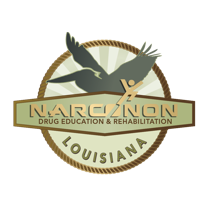Zoloft Abuse
ZOLOFT Abuse – Sertraline hydrochloride
(Zoloft®, Lustral®, Apo-Sertral®, Asentra®, Gladem®, Serlift®, Stimuloton®, Xydep®, Serlain®)
Sertraline is used medically mainly to treat the symptoms of depression and anxiety. It has also been prescribed for the treatment of obsessive-compulsive disorder, post-traumatic stress disorder, premenstrual dysphoric disorder, panic disorder, and bipolar disorder. It was first approved by the FDA in 1991.
Zoloft Abuse and Zoloft Withdrawal
Zoloft even when taken as prescribed has some known side effects. These include:
- Very stiff (rigid) muscles, high fever, sweating, fast or uneven heartbeats, tremors, overactive reflexes.
- Nausea, vomiting, diarrhea, loss of appetite, feeling unsteady, loss of coordination.
- Headache, trouble concentrating, memory problems, weakness, confusion,
- Hallucinations, fainting,seizure, shallow breathing or breathing that stops.
Zoloft has a known potential for abuse, especially when taken with other drugs. When stopping Zoloft it is recommended that you consult your physician and taper the amount of zoloft being taken.
The effects of zoloft withdrawal have been reported to be:
- Irritability
- Agitation
- Dizziness
- Burning or tingling sensation
- Anxiety
- Confusion
Because of the high occurrence of withdrawal symptom’s and the increased risk of major complications due to using other drugs when using Zoloft, rehabilitation may be necessary. Call Narconon for a free assessment today.
Zoloft Abuse Information
Suicide Risk from Zoloft Use
In June 2003, Britain banned the use of sertraline for children under 18 after studies showed a link to increasing suicidal rates.
Similar concern has prevailed in the United States, where only the anti-depressant fluoxetine (another SSRI) is officially endorsed by the FDA for the treatment of depression in minors.
However, because the antidepressant-suicide link is correlational, scientists do not know whether the increased suicide risk for people taking antidepressants occurs because the drugs make people suicidal, whether suicide occurs because the drugs un-depress the people enough to motivate the energy required to commit suicide (a popular theory), or because of a third, unknown factor.
Use of Alcohol with Zoloft
Patients should limit their alcohol intake while on sertraline (or any antidepressant). Because the liver is doubly taxed with processing both substances (in addition to any other drugs the patient may be taking), alcohol remains in the bloodstream longer, so the effects of alcohol may be more strongly and quickly felt by people taking sertraline or other antidepressants.
The recommended limit for alcoholic beverages for people on sertraline is two per day.
Zoloft Abuse Information
Medical Information
Sertraline is used medically mainly to treat the symptoms of depression and anxiety.
It has also been prescribed for the treatment of obsessive-compulsive disorder, post-traumatic stress disorder, premenstrual dysphoric disorder, panic disorder, and bipolar disorder.
It was first approved by the FDA in 1991.
Sertraline can have a number of adverse effects, including insomnia, asthenia, gastrointestinal complaints, tremors, confusion, dizziness, anorgasmia, and decreased libido.
It can induce mania or hypomania in around 0.5% of patients. It has also been known to cause minor weight loss.
One property of sertraline is that it appears to be also a minor inhibitor of dopamine reuptake. It is contraindicated in individuals taking MAOIs or undergoing electroconvulsive therapy.
Because of its metabolism, liver impairment can affect the elimination of this drug from the body. If someone with liver impairment is treated with sertraline, lower or less frequent dosage should be used.
